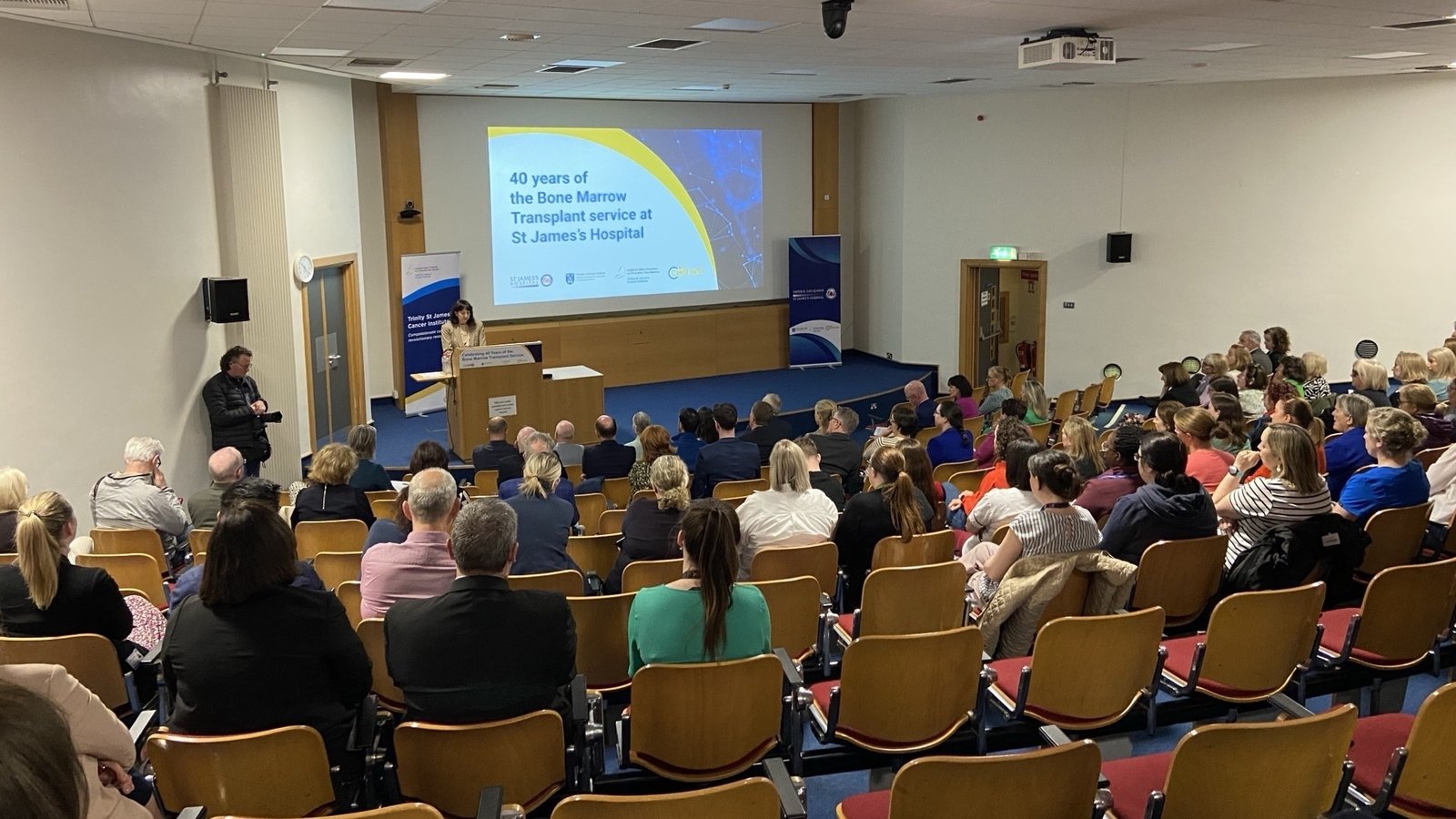World
‘It changed my life’ – call for more bone marrow donors

An event to mark the pioneering first bone marrow transplant in Ireland is taking place at St James’s hospital in Dublin.
Patients who received transplants in the early days of the Bone Marrow Transplant Service, as well as consultants and researchers, are gathering to honour the medical team who took part in the programme.
The first transplant took place in 1984, overseen by consultant haematologist Prof Shaun McCann, to treat a patient with leukaemia.
St James’s Hospital now facilitates bone marrow, stem cell and CAR-T transplants for over 235 patients with blood-related cancers each year.
So far this year, 70 Irish patients have received volunteer donor marrow transplants from people all over the world.
Minister for Health Stephen Donnelly and St James’s Hospital Chief Executive Mary Day will plant a tree on the hospital campus to mark the occasion.
Ireland needs more bone marrow donors as the country’s demographic grows older.
‘’We’ve lots of older people who are healthier and these people want life changing therapies just like their younger counterparts,” Dr Catherine Flynn, Director of the Bone Marrow Transplant programme told RTÉ News.
“We need to do approximately 50% more transplants to serve the needs of the Irish population.”
Some 200 bone marrow transplants are carried out every year here.
‘’Most recently, we’ve transplanted someone in their 74th year and this comes with an extra layer of additional needs, medically nursing laboratory and we need to do more transplants if we benchmark ourselves with our European neighbours,’’ said Dr Flynn.
Irish people have been praised for providing donations as part of a global health programme.
Professor Paul Browne, Professor of Haematology at Trinity College Dublin, added: ‘’We have now over 400 to 500 people in Ireland who have volunteered to donate bone marrow, not for a family member but for a patient somewhere else in the world.
‘’One patient told me they counted that to have their bone marrow transplant successfully, they had to have blood donated from over 100 Irish volunteers.
“This is an incredible story. We had another patient who recently had a transplant who received the bone marrow from a donor who was actually having the cells collected in Australia and then they were travelled, ferried across the world and delivered to our patient.’’
Bone marrow transplant patients have thanked the team at St James’s for the care and attention they received throughout the years.
‘’It changed my life,’’ said Mairsile Hourihane, who received who received a bone marrow transplant in 1989.
‘’Even though the service was in its infancy when I received my bone marrow transplant, I always knew that I was lucky to be in the best place with the best team looking after me, and I am delighted to be here to celebrate all that the team continues to achieve.
‘’A life without that transplant? I wouldn’t be here today. I’m as healthy as anybody my age are, in fact healthier than some of my friends.
“So it’s a very good quality of life. I’ve had a good life. I will have plenty more of a good life, and I’m still active and working and healthy.”
Since its inception, the transplant unit has been supported by the Bone Marrow for Leukaemia Trust, a charitable organisation, which has raised more than €20 million.
The support has provided equipment, contributed to funding for staff and the development of accommodation for patients post their stem cell transplant.
Acknowledging this milestone in cancer care in Ireland, Professor Mary Day, St James’s Hospital Chief Executive Officer said: “St James’s Hospital has a long history of stem cell and bone marrow transplant and this anniversary would not have been reached without the clinical expertise that we have accumulated and developed.
“The ground breaking work of our expert clinicians, such as Professor McCann, has allowed us to cement our place as a world leader in cancer care and led us to the establishment of the Trinity St James’s Cancer Institute, the first OECI-accredited cancer institute in Ireland.”










